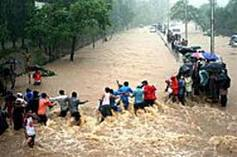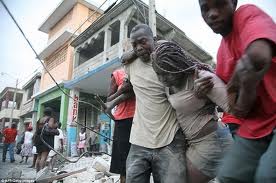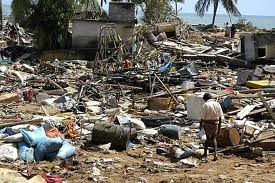The images and statistics from the unfolding humanitarian disaster in Pakistan are heartbreaking, overwhelming and immobilizing. Pakistan flood, Haitian earthquake, China floods, Russian wild fires, Indonesian earthquake, America's Katrina, Guatemalan storm, BP oil spill... Then, add to the mix the hidden daily disasters: 8,500 people die from AIDs every day; every 30 seconds a child in Africa dies of malaria; hungry and poverty kill 25,000 people every day...



Am I only person suffering from "disaster fatigue?" Natural or manmade causes, the calls to contribute to save the world are a crescendo of grief and confused appeals to my wallet. I want to intelligently do my part, but how can I be sure my money is well-spent?
Almost every disaster is followed by news reports questioning how the funds were spent, if they were diverted, if they were slowly distributed, never reached the most needy, blocked by some government's ineptitude, used to further a religious recruitment, and so on. Every tide of rising flood waters is matched by a rising tide of criticism about fat and bloated, and often squabbling aid agencies.
And, then, there is the secret suspicion that the fate of a poor child who had the back luck to be born on a flood plain should not hang on the philanthropic caprice of private donors who, that week or month, may or may not have had a good return in the stock market. In the 21st Century, given that disasters are a universal affliction, is there not a universal solution?
In the public commons of humanity, when are we going to grow up? Does it make any sense at all that every single major human catastrophe seems to require (a) a meeting to exact individual, episodic pledges from wealthy governments who are then slow to keep their promises; (b) formation of a distinguished presidential charitable campaign to raise donations from corporate donors and fat cats; and (c) a blizzard of TV ads begging viewers to text their donations?
And, for goodness sakes, don't plan your national flood or earthquake to occur before a hot news story, like the World Series, a political scandal or Paris Hilton's underwear or lack thereof. The news cycle will certainly curtail charitable giving to your calamity.
Ignoring for a brief minute the nutcases who mindlessly fear world government (and implicitly embrace global anarchy and callousness), since there is a World Bank, why not a World Insurance Company?
All that aside, it is unconscionable to do nothing. None of us could live with ourselves.
In Pakistan, Naya Jeevan, a carefully selected Opportunity Collaboration Fellow, is a nonprofit social enterprise providing low-income families with affordable access to quality, catastrophic healthcare. The flood waters on the nightly news are proving Naya Jeevan's social model works.
The Pakistan floods of 2010 are the worst disasters in the last half century. One-fifth of Pakistan is covered with floods and 20 million people are displaced and suffering.
Read Naya Jeevan's Pakistan Floods Response. Then act.
